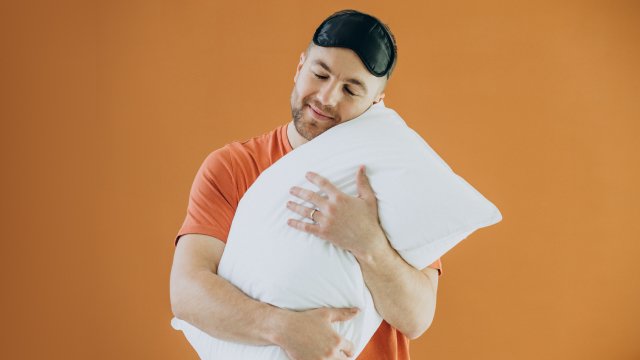Introduction
There are many factors that affect your sleep quality. Some of these are within your control, while others are not. One question that often comes up is: when should you go to bed? There is no one right answer to this question, but there are certainly some guidelines you can follow when deciding what time would be best for you to hit the hay.
What science says
Science says that it depends on your body clock. Most people need seven to nine hours of sleep each night, but some people need more or less. Most people have a natural sleep schedule, but in some cases you may need to adjust your sleep schedule.
You may need to adjust if you have an unusual schedule, such as working at night. You can also adjust your sleep schedule if you are traveling between time zones.
If you need to adjust your sleep schedule, try to gradually move it forward or backward. For example, if you’re waking up at 5:00 a.m., try going to bed earlier each night until you reach the time that feels right.
How the environment affects sleep
The last time you went on a trip, did you ever think about the environment you would be sleeping in?
Of course not. It was probably just an afterthought that you were going to sleep when it got dark and wake up when it got light. And yet, there’s a lot more to consider than just those two things.
The temperature of your bedroom is one of the most important factors in how well you sleep—too cold or too warm will both make it harder for your brain and body to reach the deep restorative stages of sleep.
Light exposure also plays a role: while too much light can keep us up at night (as anyone who has been kept awake by streetlights or blue screens knows), recent research suggests that dimming lights at bedtime might actually help us get better quality rest—particularly if we’re spending our days in artificial lighting all day long!
So, what does all this have to do with the environment? When you think about it, our bedrooms are pretty much like tiny greenhouses. They’re sealed off from the outside world and filled with light and heat—and also just as good at trapping moisture and pollutants as any greenhouse is.
Factors to consider
- Light exposure. You should make your room as dark as possible, with the lights off and curtains closed.
- Noise. If it’s too loud, use earplugs or wear a white-noise machine to block out distracting sounds while you sleep.
- Thermostat. Keep the temperature in your room between 65°F (18°C) and 70°F (21°C). If that’s too hot or cold for you, consider putting a fan next to your bed so you can adjust it easily throughout the night if necessary—it can help reduce body temperature while also making you feel more comfortable overall during sleep cycles.
- Medication use and side effects—including over-the-counter drugs like ibuprofen or Tylenol PM (prescription medications like Ambien are another consideration). These may have an impact on when someone is most likely to fall asleep at night, so if this applies to you then be sure that any medication taken doesn’t cause drowsiness before bedtime!
Consequences of sleep deprivation
The consequences of sleep deprivation can be serious. For example, researchers have found that lack of sleep may increase your risk of obesity and heart disease by reducing your ability to regulate blood sugar levels and produce hormones that control hunger. It’s also been shown to reduce your ability to concentrate, remember things, and perform tasks while multi-tasking.
How many hours should you sleep?
While you’ll want to sleep as much as possible, it’s recommended that adults get between seven and nine hours of sleep each night. Sleep is important for brain function, memory, and mood; it’s also an opportunity for physical recovery. It helps regulate hormones and maintain metabolism while also playing a role in mental health.
As we’ve previously discussed, the body has a natural circadian rhythm that makes us feel sleepy around the time that our bodies’ biological clocks tell us it’s bedtime—even if we don’t have anywhere to be the next morning! But what are some other factors affecting how much sleep we need?
There are many factors that can affect how much sleep we need, including our age and lifestyle choices. The general consensus is that children need more sleep than adults do, with newborns needing around 16 hours a day and adults generally requiring seven to nine hours of shuteye each night.

Also read:
What benefits of daytime napping?
Tips for getting better sleep
- Avoid caffeine after 12pm
- Get sunlight in the morning
- Exercise regularly
- Sleep in a cool room
If you’ve ever gone to bed only to find yourself wide awake at 2am, tossing and turning until the sun rises again, it might have something to do with your sleep schedule. But don’t worry: there’s still plenty of time for night owls to catch up on their zzz’s. Here are some tips for getting better sleep:
- Avoid caffeine after 12pm; otherwise, it can interfere with your body’s natural sleep cycle by making it difficult for you fall asleep at night and stay asleep throughout the night. This will also help prevent afternoon disruptions from occurring. For example, if you drink coffee in the afternoon or evening (and I know this is tough), try taking fewer sips over a longer period instead of having one large cup right before bedtime
Takeaway:
The most important thing is to get enough sleep. You can’t be successful if you don’t get enough rest, and chronic sleep deprivation can lead to weight gain, heart disease and depression.
But what time of day works best for your body? Do you need a late night? Are the mornings your best time at the gym? It depends on your individual needs—you might not even have a consistent preference across days or even weeks!
The best way to find out what works for you is to experiment with different times and see how they affect your energy levels throughout the day.
Conclusion
To make sure you get the best sleep possible, it’s important to know what your body needs. If you don’t, then you may be going to bed at the wrong time and waking up feeling groggy or exhausted throughout the day.
